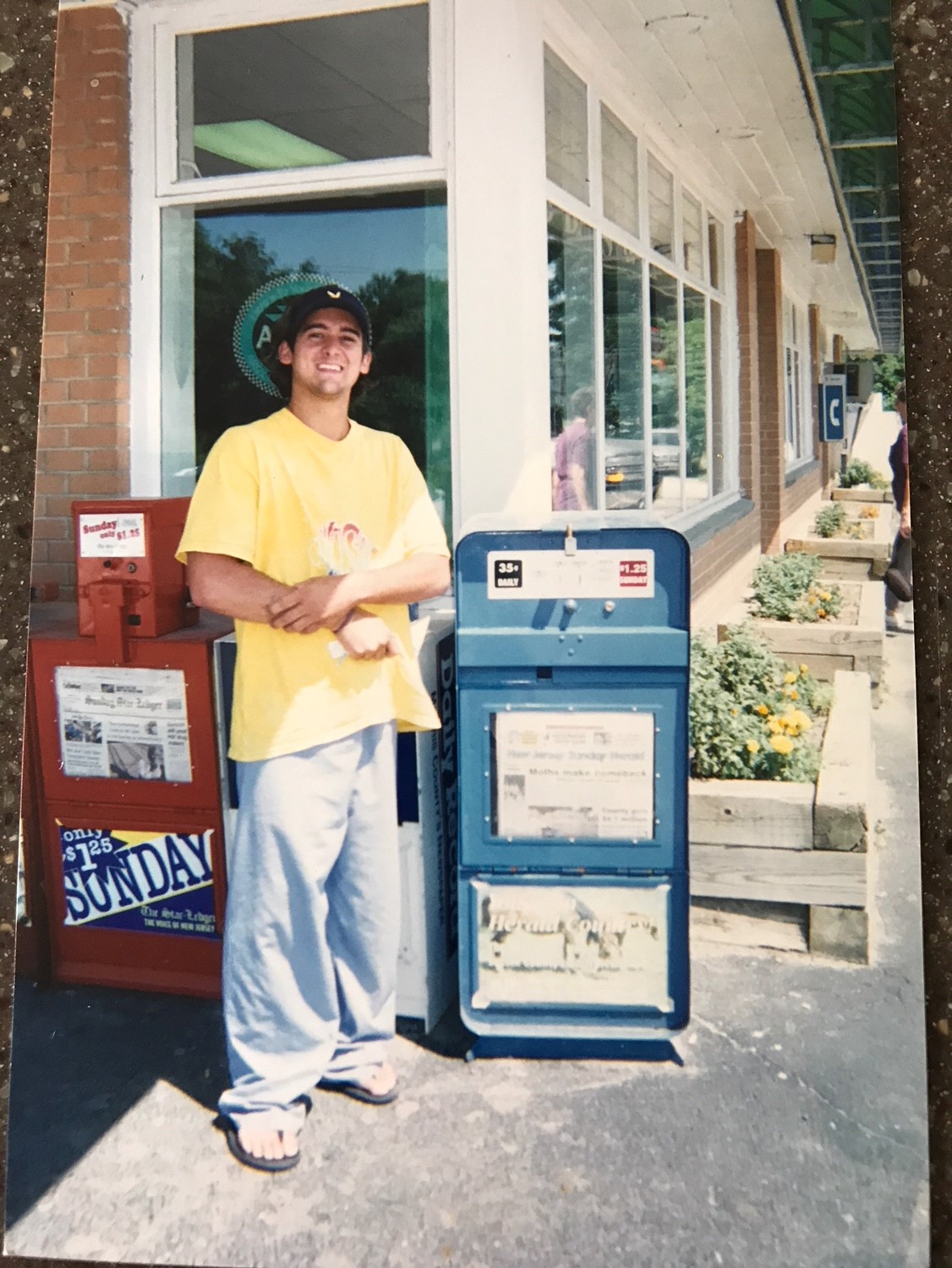I was at Ground Zero on Sept. 13, 2002, rendered speechless by the sight – and smell – of the fallen towers, unable to do much but stare.
I listened on the radio to former NJ Gov. Jim McGreevey’s “I am a gay American” speech, and within a few days was working the NJ Statehouse beat to help cover the shift in leadership.
I was in Atlantic City as the threat of casino-gaming legalization in Pennsylvania loomed. Some fifteen years later, I worked in Bethlehem, PA, where I saw a city revitalized partially because of the jobs created by that very effort.
I was in Newburgh, NY, when it was listed as the most dangerous city in America – talk about impact on our hospital’s inpatient volumes and perception!
I was at the Jersey Shore when Hurricane Sandy hit, wiping out homes and streets leaving no trace they existed.
I’ve met or been present for speeches from Barack Obama, Bill Clinton, the Rev. Jesse Jackson, Rudy Giuliani, and Don King, and just recently I met David McCullough, my favorite non-fiction writer.
Now, I am at Philadelphia-based Thomas Jefferson University and Jefferson Health, one of the most dynamic and fastest growing academic medical systems in the country as it’s disrupting healthcare and higher education – and I’m having a blast!
I live in an apartment in Center City, walk to work for the first time, have taken a cold puddle or two to the back and have had a front row seat to a city whose ethos of toughness, grit and perseverance was reflected by its football team’s first ever Super Bowl win.
And in about a month I am headed to Israel help grow our international brand, and run – for the first time in my career – a cross-continental press conference.
The unintended consequence of my career has been an adventure of a lifetime. College graduates should understand and embrace the concept that change is good, challenges are opportunities to learn and grow and a great adventure awaits. Don’t settle for convenience.
So I figured I’d share five pieces of advice I wish I had received when I was you – in an era before cell phones, daily emails, Fortnite or social media.
1. Be an expert in nothing.
At an award ceremony in my first year as a journalist I asked a senior writer from a paper I greatly admired the keys to success and this was her reply. So I took journalism assignments that exposed me to courts and crime, sleepy town beats, dreadful school board meetings, etc. This led to opportunities covering Atlantic City politics and the Statehouse. Because of my “political experience”, I got my first PR job in healthcare as a PR and government affairs coordinator. By being an expert in nothing, it opened up everything.
2. Things don’t happen to you, they happen for you.
Another great piece of advice from a hospital buddy of mine. Switching jobs means switching cultures. The more you do it, the better you get at it – you must identify sacred cows, land mines and toxic people and understand what levers to press when. Like many, I have been exposed to my fair share of stay-in-your-lane and change-averse personalities. It can be torture. But some of the most meaningful lessons I ever learned were in change-resistant environments. Listen and learn before making too many of your thoughts known. No matter how bad things may get, they are gifts that inform the type of worker – and leader – you become.
3. Never be the smartest person in the room.
No one wants to find out they’re not the smartest person in the room. There’s a tendency to want to fill a perceived void at a meeting with a concept or idea you think would be a perfect solution. Resist doing this early in your career! No one wants to find out they’re not the smartest in the room, but they really, really don’t want to find out that you think you are. If the idea is a good one, there are other ways to carry it forward.
4. Take the Interview!
I’m amazed at how many people I know talk themselves out of jobs with a bunch of self-limiting excuses. I hear things like, “It’s too far away.” “I’m not what they’re looking for.” “I don’t want to commute.” “My wife would never relocate.” Take interviews. If nothing else you get better at them. You never know if a job is perfect for you or if you’re perfect for the job. Get the offer, ask questions, evaluate fit and then talk yourself into – or out of – the job.
5. Bring passion an show it.
Skills can be developed and in most cases taught, cultivated and curated. If you want the job, let the hiring manager know it. If you love the job you’re in, let your supervisor know. Every job has tedious, mind-numbing, soul-sucking work –that’s why it’s called work! People who have passion manage their way through the muck because they know a greater cause and better work awaits. Passionate people identify projects important to them and that’s where the greatest lessons are learned. If you have passion, I know the rest can be developed. If you don’t, I know I can never teach it to you.
Good luck Class of 2018!
It’s your one life.
Make it meaningful.


